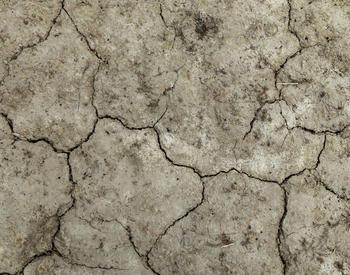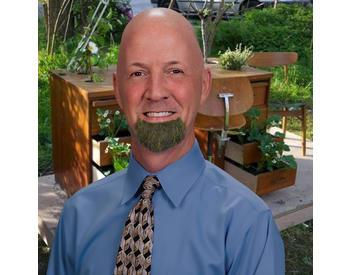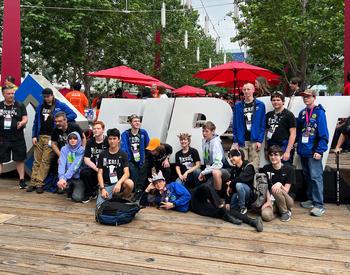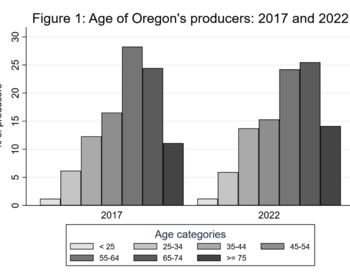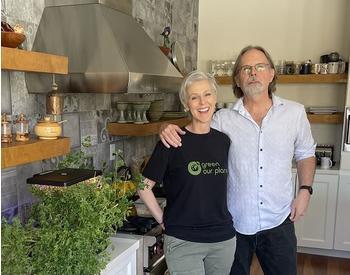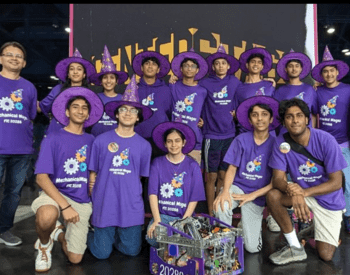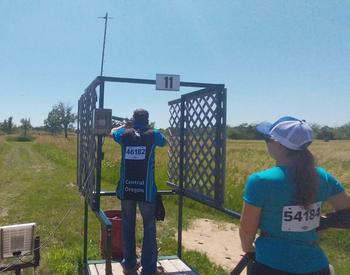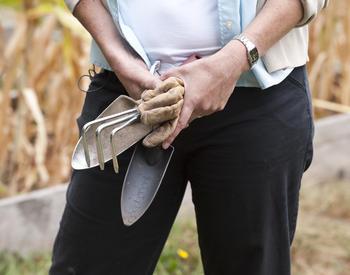Transcript
00:00:07 Rick
Welcome back to the farm to school podcast where you will hear stories of how you thrive and farmers prosper when we grow, cook and eat delicious, nutritious local food and schools.
00:00:18 Michelle
Hey everyone, we are your hosts, Michelle Markesteyn
00:00:21 Rick
And I'm Rick Sherman. We're Farm to School coordinators with the state of Oregon.
00:00:28 Michelle
So this is number four of four of a special series from Rick was on assignment right at the growing schools Garden summit in San Diego, CA.
00:00:39 Rick
Yes. And everyone asked, where's Michelle? They just wanted to talk to you.
00:00:45 Michelle
I actually have an amazing excuse. It was also the Oregon School Nutrition Association's annual conference. And if folks, there is school nutrition association… national but also state level organization and so while you were working on one component of farm to school, getting kids, right, that's how you thrive. I was also working on the how farmers prosper by making market connections with folks who buy the food. It's cool.
00:01:04 Rick
Yeah. And about that, it looks like we're doomed because this will always be the same weekend. So that's OK. I'll just go to the Oregon State Nutrition Association every other year. And I'll go to the school garden one every other year. So I think I think I'm at peace with that now.
00:01:31 Michelle
So that's some really good life planning, right?
00:01:34 Rick
Yeah, the life plan of conferences, so it really it, it worked for the best. But yeah. So with that in mind, this is our last of the four part series. So for three more people to go.
00:01:44 Michelle
Let's hear some stories from the field. Let's hear them.
00:01:51 Rick
OK, enjoy everybody.
00:01:57 Rick
So I am here with Matt Sablan and Matt, you are our very first international guest we've had on this show! So Matt, please tell us about yourself and where you're located at. Well, I know you're in San Diego right now, speaking to me, but where are you normally?
00:02:07 Matt Sablan
OK to that. Yeah. I work for the Guam Department of Education.
00:02:23 Rick
Yeah. So you're my counterpart. So you're the farm to school person for Guam, Department of Education. Right. OK, good, good deal. Alright. So what do you what is your job entail? What do you do there in in Guam?
00:02:31 Matt Sablan
Yes. So I'm actually part of the child nutrition programs, and we work with the Food services. We also apply for grants such as the Farm to School Grant. And so I'm actually project director for one of the farm school grants that we have going on.
00:02:48 Rick
For the USDA Farm to School Grant? And so is this the part where we just kind of talk about the project.
00:03:01 Rick
Yeah. Yeah. Please do.
00:03:02 Matt Sablan
Yeah. So it is a multiyear project and we are just kind of kicking things off. Starting off with really trying to go reach out to all the schools and see who's interested in in starting school gardens.
00:03:16 Rick
And you have one school district in Guam?
00:03:18 Matt Sablan
We have three, but one of them is really big, which is the Guam point of education. And so that's who our who we are mainly working with.
00:03:22 Rick
Yeah, OK.
00:03:26 Matt Sablan
We are primarily working with and them, we reach out to the other school district.
00:03:30 Rick
OK, alright, so I know I've heard you say you have a lot of challenges there. What are what are some of the challenges there in Guam?
00:03:37 Matt Sablan
In Guam. Oh, you know, I mean, it's Guam is a very small island, the middle of nowhere. So of course where we, you know, the land is very limited as far as growing, so we do get a lot of imported food. About 90% of our food is imported.
00:03:56 Rick
Wow, yeah, and you're able to grow some things there. And I heard, yeah, I heard you talking about that. We'll go ahead and expand on that then.
00:04:02 Matt Sablan
Yeah. So of course, we have two seasons. Rainy and dry.
00:04:05 Rick
Alright. And it's tropical there?
00:04:07 Matt Sablan
It is tropical. Yeah. And so right now is actually considered the dry - We're in the dry season, but certain fruits and vegetables thrive throughout the year. We have bananas. Papayas. Coconuts . Yeah, but as far as the vegetables go, cucumbers, we see a lot cherry tomatoes. Yeah, of course. You know, within their seasons.
00:04:33 Rick
cherry tomatoes and not regular Romas and big tomatoes?
00:04:39 Matt Sablan
You know what I don't know? That’s a good question. But it's different tomato varieties. We just did a taste test at one of our schools and when we bought some cherry tomatoes, some tomato varieties from one of our stores and it was locally grown. Yeah, but there were different sizes. And so we noticed that it wasn't just cherry tomatoes. It was probably some of them were grape. Some of them were plum, but and some of them just different sizes. And so not just cherry tomatoes, but yeah, and some were actually Romas, but small, like almost the size of a, like a grape or a plum.
00:05:18 Rick
Yeah. OK. Good. What else? What? Are you ever able to get out in the field and see some of the schools and interact with the kiddos there or anything?
00:05:30 Matt Sablan
Yes, definitely, yes, yes. So just recently we did a nutrition education presentation at some of our elementary schools over the last few weeks.
00:05:35 Rick
Oh.
00:05:39 Matt Sablan
And we did a taste test with the tomato varieties we grow.
00:05:44 Rick
Oh, I was about to say tomato varieties. And how does that go? How do how do the kids, you know, like it?
00:05:49 Matt Sablan
Of course. It was the early earlier grade levels. So I mean they loved it. I mean, the kids get excited about and when it's a taste test, even though they don't know what they're tasting, they get excited. Of course, mixed opinions and then they're trying it out. You see their faces and someone giving you the yucky face and some of them we met really like it. And they go for seconds and thirds. Yeah. And so, you know, it's just great to see the expressions on their faces and how receptive they are to it.
00:06:20 Rick
If there's one thing you could tell our listeners about what you do and what your job entails, or what would, what would that be that take-away?
00:06:32 Matt Sablan
Ohh man, a lot of … well for farm to school specifically I think you have a lot of outreach, networking. Because it’s not school district staff that or school staff that are able to manage it, you need a you need to work with other partners, other organizations outside of the district.
00:06:57 Rick
You know, it's funny you mentioned that you know, and I used to be a food service director for years and years and I always say, like I've gotten in trouble for doing... it's as I always say: don't even do farm to school unless you tell your story and stuff like if you just if you put out local stuff, certainly kids will like that and see local fresh food. That's great. But if you tell them and teach them about it and say, hey, this came from the farm down the street or then they really they do it. So it's really good to tell your story and to market it like that.
00:07:31 Matt Sablan
Yeah, it's good. I can appreciate that.
00:07:34 Rick
Cool. Anything else for the good of the order?
00:07:38 Matt Sablan
No, thank you for having me.
00:07:40 Rick
Thank you, Matt. So much for stopping by. I really appreciate it.
00:07:44 Rick
OK.
00:07:48 Rick
So I'm here at the growing, growing school garden summit in San Diego, CA again and I'm with Leona Verbanic and Leona is with Newark City Schools and it's not New Jersey and it's in a different state. Hello, Ohio. Oh, very good.
00:08:04 Leona Verbanic
From.
00:08:06 Leona Verbanic
Yes.
00:08:07 Rick
Now, where I'm very familiar with Ohio, but not that town. Where are you located? in Ohio?
00:08:15 Leona Verbanic
We are about 20 miles east of Columbus.
00:08:18 Rick
OK. East of Columbus, my dad grew up in Cleveland, so I feel like I'm a Buckeye at heart, you know? But yeah, I was able to take him back where he grew up and stuff and back there. That was another trip. That's another podcast episode, though. It was so cool there, it's a really, really neat area. So Leona. Yes, please tell me what do there?
00:08:42 Leona Verbanic
So I teach culinary and the classes are either basic cooking skills or a global field foods class, and we have a school garden. So the students are responsible to grow their food, harvest their food, prepare their food, eat their food, compost back into the garden.
00:09:01 Rick
What grade level is this?
00:09:01 Leona Verbanic
So it’s a Micro Ecosystem high school grades 9 to 12, mixed classes.
00:09:05 Rick
Very nice. That's good. Now we found I found in my line of work. You know, there's more school gardens in the elementary level, and there's well and there's less schools as you go up. So it would stand to reason that there are less school gardens because there's like maybe 1 high school for every 10 elementaries or whatever.
00:09:15 Leona Verbanic
Yes. Correct.
00:09:28 Rick
But it's like it's easy to get kids involved in elementary age, but it can be tougher for the high school. So tell me, do you have challenges there for the high school level school garden?
00:09:40 Leona Verbanic
We do. Once we got the program started, I am happy to say that the students passed down that to each other. The skills of being in the garden. So when we first started the garden about eight years ago, it was really hard to get us to step off the sidewalk because that wasn't really acceptable. Everyone was to walk on the sidewalk. But the students? Said “Miss V, I Have one pair of shoes and you want me to walk through the grass and then down there in the muddy garden and you know, maybe I just want to sit down for a minute and there's nowhere to sit out here.” So they made a plan to have pads and raise beds and they wrote grants and they developed a system and now they care for the garden in the school year, and they come in the summer and they bring their friends and they say, this is what we do in the garden. So we really have created a culture of if you take culinary, you are taking gardening.
00:10:37 Rick
You're a by design, then you're a culinary teacher.
00:10:42 Leona Verbanic
Yes, in the traditional public high school. So it's not a vocational school. I am in the general High School, which is a little bit unique, yeah.
00:10:44 Rick
Yes. That that is wonderful though I've seen that before where we have some culinary students, sometimes it's a horticulture teacher, sometimes it's a math teacher, sometimes it's a science teacher, FFA. And then then you have the culinary aspect and I love that because you truly get “OK we got this stuff and we're going to do stuff with it and we're going to really teach you what to do with that food. So that's really great. Can you tell me what's the name of your school? The high school you're at ?
00:11:20 Leona Verbanic
Newark High school.
00:11:21 Rick
It's just Newark high school. OK, What's the population there? How many kids?
00:11:25 Leona Verbanic
About 1400.
00:11:26 Rick
OK, that's a pretty good size, yeah.
00:11:29 Leona Verbanic
And I'll have about 120 per semester, so it's a semester class, so I see quite a few students.
00:11:31 Rick
Oh wow, that's fun. Every year so 120 and how many is that one class or is that…?
00:11:41 Leona Verbanic
No. So I teach 6 periods a day.
00:11:43 Rick
OK. Holy cow, that's really good.
00:11:46 Leona Verbanic
So it's just 40 minutes, so they've got to get in and get it done, a sense of urgency really helps us connect to the work, like we've only got this 40 minutes. We've got to get out there and get this job done and you know, get on our way.
00:12:04 Rick
What's a what's a typical day look like then and that it sounds like madness, so go ahead, yes.
00:12:09 Leona Verbanic
It is a little bit like that. So I start my first period. It is so beautiful with students, with more significant needs and peer mentors. So if a student has had my class in the class, they are able to come for that period and we do all of the same work. We work in the garden, we do cooking. We're really focusing on life skills. And then after that I have a sustainable design class.
00:12:34 Leona Verbanic
Where we work on planning, we work with anything that we can get our hands on, whether it's wood or wool or and create with that, and then I started into foods and the rest of the day, every 40 minutes is a new foods class. Yeah.
00:12:49 Rick
OK, what do you do? You have any goals for? Like down the road? Five years, 10 years. Ohh, you lit up when I said that. That's great. Tell me about them.
00:12:55 Leona Verbanic
So many goals, yeah. So we really have an established annual garden vegetable garden, Herbal Garden the students love to work with the herbals. They're so grounding. But we are developing a food forest and it's perennial and it's so good for the ecosystem.
00:13:17 Rick
What can you our listeners out there that don't know what a food forest would look like?
00:13:24 Leona Verbanic
So if we think about walking into the forest and we see like the soft ground beneath our feet from all the decomposing matter and kind of the shade overhead, and everything's a perennial, so there's deep roots going into the ground and just bringing up nutrients from deep in the earth. That is what we are trying to mimic in a food for us. So there are six or seven layers and it starts. We started ours with a mulch layer and then come free for a deep tap root and then we cut the complete and kind of spread it as mulch and then we need to add an herbaceous layer and we have a tree layer of apple trees. We need more diversity. We know that, and then we need like a kind of shade layer. So we are currently starting that. We have the mulch and we have the apple trees and they're so abundant and prolific. But when we add the other pieces, the system will be so much healthier. And we are in an area that is the Native Americans there just cared for the earth in our area so beautifully and we've lost that knowledge. And so we're looking to meet with some of our local leaders to find them through Ohio State has connections and they have a branch in our area so that they can teach us about how to care for the earth more effectively.
00:14:53 Rick
I'm glad you mentioned that we I had a person on a couple months ago and she talked about she had the school and it was a very unique system and I forget what she called it... It was like a bioswale or it was some wet Prairie and she wanted to find out, like, well, How do you honor the earth? You know what you know, rather than rip it out and do something and to mitigate it, it's like, what should you grow there? What would the native population grow there 100 years ago, so she found that out. She went and had them come on and say, oh, this is what we would do. We would move stuff here and then during the wet season, we'd come back to this area. And so that that's what they do. It's like, well, why, why we should honor that. That's that. I'm really glad you brought that up. That's really cool.
00:15:44 Leona Verbanic
That's the hope that we can bring those voices back and that knowledge back to our area.
00:15:46 Rick
Oh, that is wonderful. Well, do you have any questions for me? Anything good of the order? One thing I'd like to ask is it, what's the one thing you would like the listeners to know about? What? What you do, what excites you about teaching the kiddos?
00:16:08 Leona Verbanic
I would say for the high school population. Just stopping to look at them and listen to them and say what you need today, and have available for them sunshine and soil and herbs. So if my students are having a bad day, if they feel down, if they feel angry, if they feel frustrated and we sense that when any if I walk into the room that way they sense it, then I can say you go to the garden and get what you need, and the water will be ready and you can come back and have a cup of tea and they'll choose peppermint if they need a pick me up or chamomile if they need to come down. Lemon balm if they feel like they just need something warm and fresh and so I love having that available to them. And I wish that all students would just have that opportunity.
00:16:47 Rick
Well, I certainly don't wish that I could re-live any of my high school years, but I would sincerely love to be a part of your class, Go back. That sounds like it's such a wonderful place to be at. So thank you, Leona. So much. Thanks for joining us.
00:17:18 Leona Verbanic
Thank you, you bet! Bye bye.
00:17:24 Rick
So I'm at the growing school garden summit in San Diego, CA and I have with me Andrew, and Andrew Tuttle, and you are near Seattle, WA and near Arlington. Is that correct? OK.
00:17:39 Andrew Tuttle
Yeah, that's right, Rick. Yeah, I'm on a little farm there, 20 acre farm just north of Seattle in Arlington, Washington.
00:17:44 Rick
That is a close to my heart because I grew up there. I'm born and raised in Skagit County in Anacortes, WA, just up the road up there, so I'm very familiar with that area and stuff. And so I met Andrew here at this conference. What is permaculture? A lot of people might not know what that is. I certainly need a refresher course- so, go ahead and tell me what is permaculture entail?
00:18:15 Andrew Tuttle
Yeah. So permaculture is a design system for designing regenerative human habitats. Designing farm systems and villages and designing A sustainable life on a piece of land. And so permaculture is a this this design system that's rooted in in a set of ethics and principles and those ethics and principles really guide the design process and then within a lot of the permaculture.
00:18:22 Rick
Hmm.
00:18:42 Andrew Tuttle
Next, we'll actually walk you through strategies that you can implement on any piece of land from a small urban space to a homestead or a larger chunk of land, but I've seen permaculture applied to all sorts of different spaces. The largest farm I know of is Mark Shepherd's farm out in Viola, Wisconsin. It's 110 acre farm, where they've applied all of these various permaculture principles on that site. They have diversified plantings and water harvesting earthworks which those earthworks are designed to catch and store rainwater in the soil and use that to passively irrigate crops, and I've seen a lot of these amazing systems on these permaculture farms, and so that's been my passion for the past decade is to learn as much as I can about it and share those lessons with students.
00:19:28 Rick
That sounds really great, when we think of a lot of times people just we tell people. Ohh, just plant a garden and so there's some forethought into this and so can you use these principles in a tiny plot of a few feet or acres and acres, or does it lend itself to any of that?
00:19:54 Andrew Tuttle
Yeah, absolutely. Yeah. I mean you can apply these principles to designing a kitchen. You could apply it to a small garden. And really, I highly recommend folks go check out one of the books on the topic. Practical Permaculture is an excellent starting point. That's the book that I teach all of my courses out of. That was written by Dave Bayline and Jesse Blume from the Seattle area, and those are two good friends and mentors that have done a lot of amazing educational work. But they can really breakdown these principles and ethics and show you the design process in that text. I highly recommend it.
00:20:20 Rick
OK, I'll put a link to your show and that book in the show notes. Yeah, so. I’ll certainly do that. So you mentioned teaching kids and that's good. That's why we're here. We're here about, you know, this school garden summit is all about teaching kids and culture may or may not be directed towards kids, so how is it directed towards students in your life?
00:20:48 Andrew Tuttle
Yeah. So I started teaching in, so I did a permaculture design course in 2015 and that was at Alderleaf Wilderness College near Seattle. And that was this very immersive experience where we went out to these different sites and learned saw these farm systems in action worked on a lot of these projects, and it was a naturalist immersion course, so, we did wildlife tracking and ethnobotany plant ID and really just that's where my love of nature and permaculture really started to blossom. And then when I when I saw these sites. So I remember very specifically if we backtrack a little bit, I was I was in the Marine Corps serving in 2014 around that time.
00:21:29 Rick
Thank you for your service, by the way.
00:21:30 Andrew Tuttle
Thanks, Rick. It was an amazing experience in a lot of ways. It was also very, very stressful and I found myself stationed at Anacostia right next to the White House. So I was an airframe mechanic on Marine One. And every day we were doing drills to hypothetically rescue the president if anything ever happened. And so this was.
00:21:49 Rick
Ohh wow.
00:21:51 Andrew Tuttle
A really intense time of my life and during that time I was experiencing a lot of stress and I was looking for something to help with that, I found these books about gardening and farming, and I found this book, specifically a guy's garden, by Toby Hemingway.
00:22:07 Rick
OK, I'll put that in the link as well.
00:22:09 Andrew Tuttle
Yeah, this is one. This is my very first introduction to permaculture and I read about all of these ethics and principles and all of these, these special farms out there. And I thought this can't be real and it was. It wasn't until I went to go take a course and I and part of that course was a field trip to the Bullock Permaculture homestead.
00:22:29 Andrew Tuttle
On.
00:22:29 Andrew Tuttle
Marcus Island and this is a site where they've been practicing permaculture for 40 plus years and the systems that they've established there are really, really magical. I mean, they have taken this space that was a degraded piece of land and turned it into one of the most biodiverse ecosystems I've ever seen.
00:22:34 Rick
Ohh wow.
00:22:50 Andrew Tuttle
It's actually an Audubon recognized site. Now. The wetland they restored is considered to be this this sort of Oasis for bird species a wide range of bird species visit this wetland.
00:23:02 Andrew Tuttle
And when I saw it, when I when I saw that this was really real and we could really do these things, this, this site that I had read about all those years before, and I and then I went to go visit it. And I just had this moment where I realized, you know, this is my life path. I wanna document sites like this and shared this experience with other folks. So that's when I got into these virtual tours of these sites, so I use drone imagery to create 3D models and 360 cameras to really capture and create these immersive experiences where students can then go travel to one of these permaculture farms and they're in full control of that experience where they get to click the arrow forward and move to the next spot, click on videos to hear the farmer talking about the various systems they've established there. Because my goal here is to influence minds in ways that I was hoping to experience when I was younger, I really struggled in. In high school, I actually barely graduated high school and had a really tough time. I just needed more experiences.
00:24:06 Rick
Everyone learns different.
00:24:08 Andrew Tuttle
Yeah, and the system wasn't working for me. So now my passion is developing these learning experiences that are self-guided the students in full control, they get to control the drone camera angle when they're flying around the farm. They get to control the 3D model, they get to dive into that space and get to interact with this farm in a way that no one has been able to do before. So we're also helping, you know, students in urban areas get to experience the farm in the countryside that they wouldn't be able to travel to and they could down do that virtually.
00:24:38 Rick
Well, that that sounds really fascinating. Is there a place to have a website where people can go and experience these virtual tours and stuff?
00:24:48 Andrew Tuttle
Yeah, yeah. If you're a school that's interested, please contact me directly. That's [email protected]. I'd love to chat with you about what's available. We've got a couple tours available right now on our website that’s free. That's a beacon food forest. Amazing site in Seattle, amazing community garden. And so that was the first site that we created a demo of. So go check that out at edgeperma.com. And I hope you enjoy learning about permaculture, learning about these sites.
00:25:13 Rick
I will definitely put links in in the show for that, when you were talking about that, so many things came up to my mind. First of all, I've seen it's harder now to operate drones than it used to be. It used to be like it wasn't regulated, so you could just throw them wherever. But now it's like you go sites like, I'm just down the beach here. It's at no drones in this area, no dogs.
00:25:38 Rick
I don't know this and it's getting harder and harder. Matter of fact, we operate grants in our in our Department of Education and there's all sorts of sets of insurances and things like that, liability with them. So I'm I imagine you're experiencing that somewhat. Also you said Orcas Island and how serendipitous, I mean I worked on the Washington State ferry system as a kid out of Anacortes, going to the islands, San Juan Islands and you know, anytime you talk about stress, you just lookout the window and see the islands go by. And it was just so beautiful there. And I'm familiar with them a lot, a lot on Orcas there. So it's a place and then.. the last thing that really resonated with me, you were talking about, you were so stressed. And then when you got into the permaculture and the gardening, it's just you, you almost to use my word Zen out, you know. And we've seen that on my partner Michelle and I, we talk about this all the time. There's been studies where people get their hands in the dirt, and if you go to, especially to an alternative school where there's was behavior problems, they have a school garden, and the kids, like they just it's almost like an animal husbandry. They they're taking care of the earth and they there's a beneficial bacteria in there when you get your hands dirty and they just say if I would have known this was here before I would have made different choices it just changes their lives so...
00:27:08 Andrew Tuttle
Absolutely. That's exactly what that's a huge piece of the mission behind my work with these virtual tours is I know how hard it is to get out there on farms and have that experience, and you can't really have that virtually, but what I want to create is the next best thing, and I wanna make it fun and engaging for students and I and I really want to give people the skills necessary to replicate these regenerative farm systems to replicate these permaculture farm systems because they can be very complex and very difficult to understand. And so we're using this multi-layered approach to reach minds and help invigorate and inspire students to install systems like these and landscapes.
00:27:49 Rick
OK, all good. Well, great. Andrew, I you know, thank you so much for stopping by and talking, talking to me today, I've learned a lot about permaculture and I think I've just scratched the surface and I'm going to get and research this more and stuff. And I'm would be happy to work with you in the future and stuff so...
00:28:10 Andrew Tuttle
Awesome, Rick. Thanks so much for having me. Having me for this chat and thanks to the growing school Garden summit to sprouts for all the folks putting this on, it's been amazing to get to meet folks like Rick and so many like inspiring educators here. The energy in this space is unreal.
00:28:27 Rick
It is. Yeah. Thank you again.
00:28:29 Andrew Tuttle
Yeah. Thanks, Rick.
00:28:38 Rick
Hey everybody. We'd like to thank all of our guests for being a part of our show and thank you for listening today.
00:28:44 Michelle
Wow. What a gift to hear folks share their stories, farm to school was written, directed and produced by Rick Sherman and Michelle Markesteyn with production support from Leanne Lochner from the Oregon State University. This podcast was made possible by a grant from the United States Department of Agriculture.
00:29:03 Rick
The content and ideas on the farm to school podcast does not necessarily reflect the opinions of Oregon State University, Oregon Department of Education, and the United States Department of Agriculture, the USDA, Oregon Department of Education and Oregon State University are Equal Employment providers and employers.
00:29:23 Michelle
Want to learn more about Farm to school? Connect with us? You can check out other episodes, show notes, and send us your ideas for other episodes at Farmtoschoolpodcast.org. That's all one word farm to schoolpodcast.org.
00:29:41 Rick
We would love to hear from you too, so stop by the website. Just mention to say hello or give us an idea for a future podcast.
00:29:48 Michelle
Thanks everyone for listening.
00:29:49 Rick
Thanks everyone. Bye.
Join Rick "on assignment" as he travels to the Growing School Gardens Summit, in San Diego California. Rick interviews a dozen people with amazing stories. This is part four of a four-part series.
Guests in this episode
- Matt Sablan [email protected]
Farm to School Coordinator, Guam Department of Education, USDA Farm to School Grant - Leona Vrbanac [email protected]
Culinary Teacher, Newark High School, Newark, OH - Andrew Tuttle [email protected]
EDGE PERMA virtual tours
Practical Permaculture by Jessi Bloom, Dave Boehnlein
Gaia’s Garden, by Toby Hemenway
Alderleaf Wilderness College
Bullock’s Permaculture Homestead, Orcas Island, WA
The Farm to School Podcast is produced by Rick Sherman, Farm to Child Nutrition Program Manager at the Oregon Department of Education and Michelle Markesteyn, Farm to School Specialist at Oregon State University Extension with production support from LeAnn Locher, OSU Extension. The show is made possible by a grant from the United States Department of Agriculture.
Want to connect? We’d love to hear from you!





